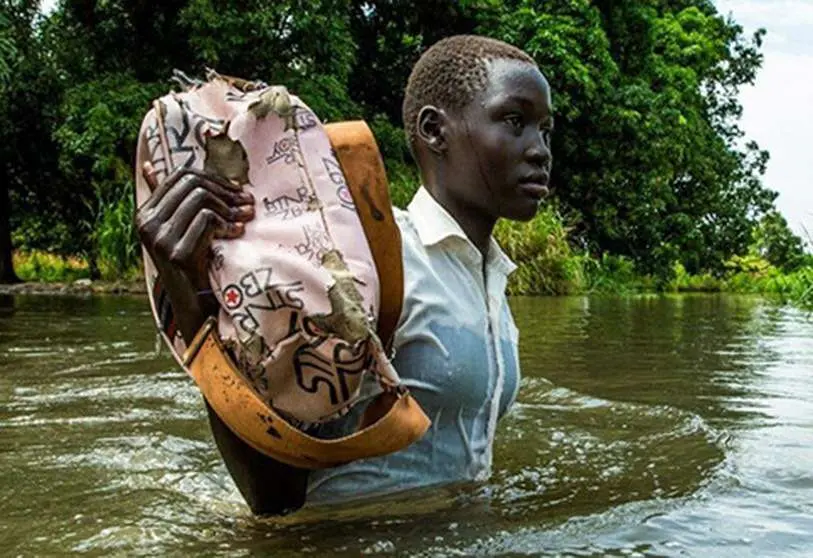South Sudan: women and girls are victims of sexual violence

In Bentiu, South Sudan, Nyachar Gatneay Rial, 38, a mother of four, tells how "I used to collect firewood, make charcoal and sell fresh milk to help meet our family's needs. Now I have to sell tea in the local market to earn some money".
Nyachar's family, like 220,000 others, lost their homes and livelihoods to flooding in South Sudan's Unity State in July 2020 and have spent years moving to seek shelter in camps for internally displaced people. The floods wiped out crops and homes, leaving thousands of already impoverished families with no shelter and no way to make a living.
The ongoing conflict and growing insecurity in South Sudan put women and girls at increasing risk of sexual and gender-based violence. Diang Juoy Tutchar, 39, a widowed mother of five, explains how collecting firewood has become a dangerous activity for women.
"We know that firewood collection areas are unsafe because of the threat of violence. There are also wild animals such as snakes and crocodiles, so it is especially dangerous when we have to cross a flooded field to get firewood".
An estimated 2.6 million people in South Sudan are at risk of gender-based violence in 2022, a staggering 25 per cent increase from 2021 estimates. Nearly 40% of women and girls reported having to avoid essential public places such as water collection points, toilets and markets, as well as places to collect firewood, for fear of being attacked, raped or sexually exploited.

Nyachar Gatneay Rial has had no stable place to call home for the past ten years. Together with her husband and four children, she has been forced to move continuously in the troubled state of Unity to escape violence, floods and drought, in a constant search for safety.
Some 8.9 million people, more than two-thirds of South Sudan's population, need urgent humanitarian assistance to survive the country's various overlapping crises, from widespread violence and entrenched conflict to public health problems and climate catastrophes.
The United Nations Population Fund (UNFPA) works in South Sudan, offering safe spaces for women and girls affected by humanitarian crises, and providing sexual and reproductive health services, protection and information in a safe environment. In 2021, it reached more than 3,300 people.
Staff also provide case management for survivors, psychosocial support, and referral to legal services if needed.
To help women and girls regain self-reliance and earn a living in less dangerous environments, the Fund supports life-skills training courses. In these trainings, they can learn how to make clothes, make jewellery or produce reusable sanitary napkins and masks. In 2020, more than 700,000 women and girls participated in these trainings.

Rial has known too many women abandoned or threatened by their husbands when they could no longer provide for their families, some even having to live in humiliating situations to earn an income.
The women are forced to take precautionary measures; they often travel in large groups to protect each other when they venture out to work, and make sure they are back before nightfall."We have no choice; we have to survive and support our families. We have to send our children to school," explained Diang Tutchar.
More than half of the two million displaced people in South Sudan today are women and girls, who are at high risk of gender-based violence and forced and child marriages.
In times of crisis, such as those in South Sudan, many parents resort to such forced marriages as a way of escaping extreme poverty, especially when they cannot afford to send girls to school. UNICEF estimates that half of all girls in South Sudan are married before the age of 18.
In 2020, UNFPA - with support from Canada, Denmark, Japan, Norway and Sweden and the European Union's Civil Protection and Humanitarian Aid Operations Fund - assisted 15,000 girls at risk of gender-based violence and forced or child marriage with protection and prevention services. It also supported more than 228,000 survivors of gender-based violence with medical care, psychosocial support and legal assistance.










